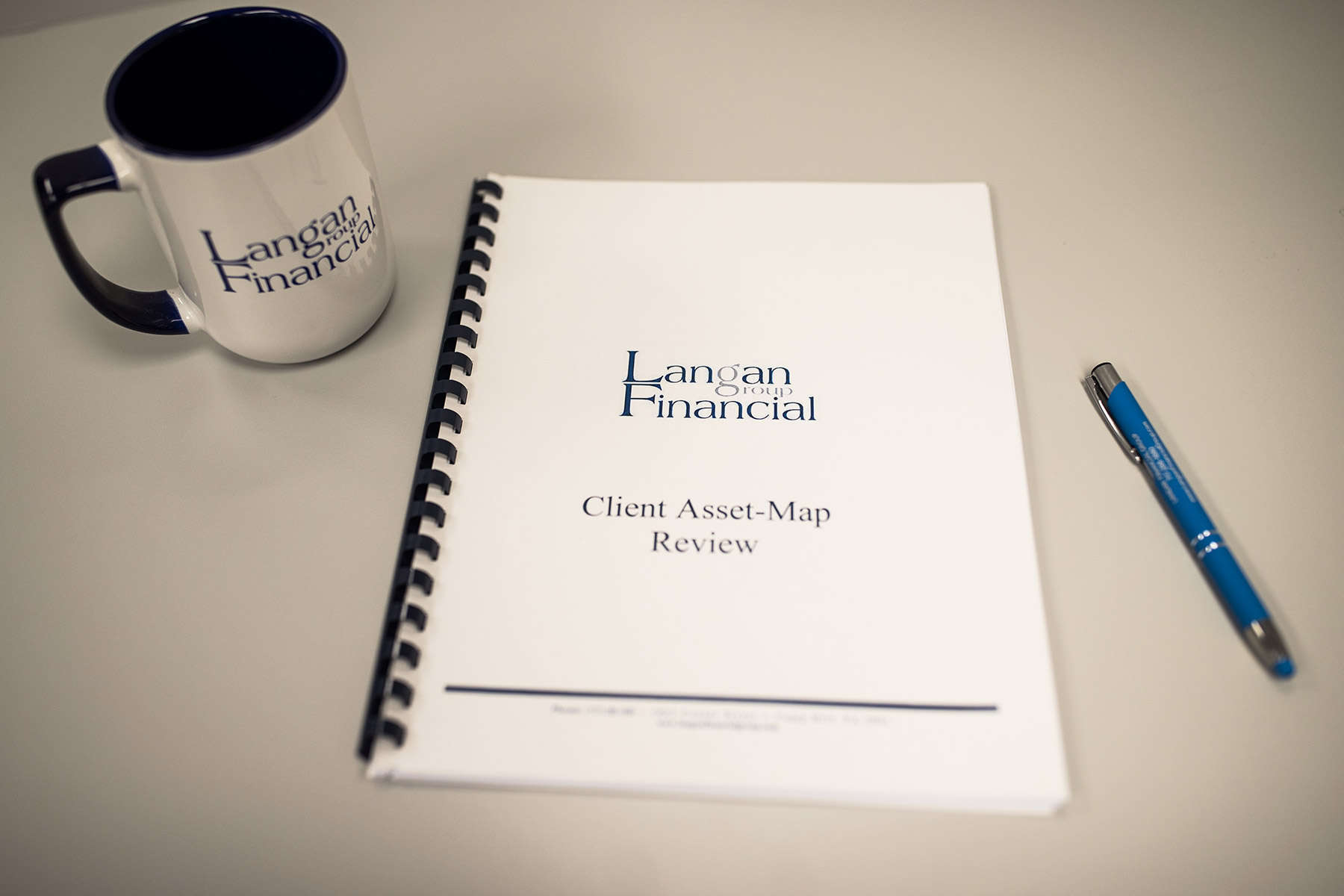Inheritance Planning Guide
Answering your inheritance planning FAQs and helping you identify the steps you take after you receive an inheritance

Financial & Inheritance Planning Testimonials
My investments have done well. I have full confidence in this group. My family now invests with them. They have gone beyond the call of duty in caring for my family.
They didn't know this: When my husband died, I had an outside advisor review my investments.
His advice? Stay with success.
My husband and I, in addition to three other family members, have been advised financially by Bob and team for years.
We've always experienced friendliness, professionalism, and compassion when dealing with the Langan Financial Group.
They continue to advise us in maintaining a balanced and profitable portfolio.
Inheriting Money: Key Steps, Tax Implications, and When to Seek a Financial Advisor in PA
Receiving an inheritance can be a life-changing event, often accompanied by a mix of emotions and financial questions.
When determining what to do with an inheritance, it is important to take a moment to understand the process, potential tax implications, and if you’ll need a financial advisor to help manage the inherited financial assets.
How Do I Know If I Need a Nearby Financial Advisor for my Inheritance?
You might benefit from a financial advisor if:
- The inheritance is substantial relative to your current wealth
- You're inheriting complex assets (e.g., businesses, real estate)
- You need help with tax planning or estate planning
- You're unsure how to integrate the inheritance into your overall financial plan
How Do I Choose the right Financial Advisor Near Me for Inheritance Planning?
To choose the right financial advisor:
- Look for credentials such as reviews and experience
- Ensure they have experience with inheritance and estate planning
- Understand their fee structure (fee-only vs. commission-based)
- Check their regulatory record and client references
- Ensure they're a fiduciary, obligated to act in your best interest
Remember, inheriting money can be emotionally and financially complex. Taking the time to understand your options and seeking professional advice when needed can help you make the most of your inheritance while honoring the legacy of your benefactor.
Inheritance Planning FAQs
What Do I Do When I Inherit Money?
When you first inherit money, it's important to:
- Take time to grieve and avoid making hasty decisions
- Understand the type and value of assets you've inherited such as stocks, bonds, real estate, business, or cash
- Consult with a financial advisor or tax professional
- Create a plan for the inheritance that aligns with your financial goals
Do I Have to Pay Taxes on Inherited Money?
n most cases, you don't have to pay federal income tax on inherited money. However, there are some exceptions:
- If you live in one of the six states with inheritance tax (Iowa, Kentucky, Maryland, Nebraska, New Jersey, and Pennsylvania).
- If you inherit income-producing assets, you'll pay taxes on the income generated.
- If you inherit a traditional IRA or 401(k), you'll pay taxes on distributions.
Pennsylvania Inheritance Tax Rate
In Pennsylvania, the inheritance tax rate is 4.5% for transfers to children, while 12% to siblings and 15% to other heirs.
|
Tax Rate |
Beneficiary |
|
0% |
Charities, exempt institutions, government entities |
|
4.5% |
Children |
|
12% |
Siblings |
|
15% |
Other heirs |
Pennsylvania treats son in laws or daughter in laws as if they are a child. As such, there is a 4.5% inheritance tax on assets that pass to the wife or widow and husband or widower of the descendant’s child.
There are exceptions when it comes to various charitable organizations, exempt institutions, and government entities.
Property owned jointly between spouses is exempt from the inheritance tax.
How Do I Invest Inherited Money Wisely?
When considering how to invest inherited wealth, it is important to work with a financial professional to create a comprehensive plan aligned with your financial goals.
When looking how to invest the inheritance, you should consider:
- Assess your overall financial situation and goals
- Paying off high-interest debt
- Diversify your investments across different asset classes
- Consider low-cost index funds for long-term growth
When it comes to investing inheritance, the right choice will differ for each individual because each person’s situation is unique.
A young person may want to pay off debt with high interest rates, while an older person who lacks retirement savings, may want to invest in their retirement. Each situation should be assessed to create a personalized approach.
How Long Does it Take to Receive an Inheritance?
The time it takes to receive an inheritance can vary significantly depending on the complexity of the estate and the probate process.
Generally, simple estates may be settled in 6-12 months, while more complex estates can take 1-2 years or longer
When Do I Have to Pay Inheritance Tax in Pennsylvania?
Are There Ways to Minimize Taxes on my Inheritance?
he majority of inheritance tax minimization techniques take place before the death of an individual.
Such tactics can include:
- Converting IRA to Roth IRA
- Gifting Assets
- Set up Joint Accounts
- Utilize Trusts
When trying to minimize taxes after the death of an individual, you can:
- Taking advantage of the step-up in basis for inherited assets
- Considering disclaiming part of the inheritance if it would push you into a higher tax bracket
- Exploring options for stretching out distributions from inherited retirement accounts
- Pay inheritance tax early
How Do I Handle Inherited Retirement Accounts?
Handling inherited retirement accounts depends on your relationship to the deceased and the type of account:
- For spouses: You can usually treat the inherited IRA as your own or roll it over into your existing IRA.
- For non-spouses: You must transfer the funds to an inherited IRA in your name and take required minimum distributions based on your life expectancy
How Does An Inheritance Affect My Retirement Planning?
An inheritance can significantly impact your retirement planning by:
- Potentially allowing you to retire earlier
- Increasing your retirement savings
- Providing additional income streams in retirement
- Changing your overall asset allocation and risk tolerance
Should I Set Up a Trust for my Inherited Wealth?
Setting up a trust for inherited wealth can help secure your own legacy while minimizing future taxes. Setting up a trust for inherited wealth can be beneficial for:
- Asset protection
- Estate tax planning
- Controlling distributions to beneficiaries
- Maintaining privacy
Chat with an Inheritance Planning Advisor
If you have any inheritance planning questions or concerns, please feel free to contact us for a free consultation.
You can reach us at 717-288-1880 or visit our contact us page to send an inquiry. We will be sure to respond within 24 hours.
FREE Benchmark Comparison Services
Financial Advisor Locations:
Camp Hill, PA Financial Planning Office
York, Pa Financial Planning Office
Harrisburg, PA Financial Planners
Communities Served:
Disclosure: Check the background of your financial professional on FINRA's BrokerCheck. The content is developed from sources believed to be providing accurate information. The information in this material is not intended as tax or legal advice. Please consult legal or tax professionals for specific information regarding your individual situation. The opinions expressed and material provided are for general information, and should not be considered a solicitation for the purchase or sale of any security. Cambridge and Langan Financial Group, LLC. are not affiliated. Cambridge Investment Research Advisors, Inc. a Registered Investment Advisor. Securities offered through Registered Representatives of Cambridge Investment Research, Inc., a broker-dealer, member FINRA/SIPC, to residents of: AL, AZ, DE, FL, GA, IA, KY, MD, NJ, NM, NY, NC, OH, PA, RI, TX, VA Cambridge and Langan Financial Group does not offer legal advice. Estate planning services are in regards to your overall financial plan. Always be sure to speak to a legal professional in regards to specific legal matters. Fixed insurance services offered through Langan Financial Group.
Testimonial/Endorsement Disclosure: The testimonials may not be representative of the experience of other customers. The testimonials are no guarantee of future performance or success. All of the testimonials/endorsements are clients with the exception of Steven Martinez of York SPCA. There was no cash nor non-cash compensation for any of the testimonials provided.
© Langan Financial Group
Harrisburg, PA Office
Address: 1863 Center St, Camp Hill, Pa 17011
Phone: 717-288-1880
York, PA Office
Address: 3405 Board Rd, Suite 200, York, Pa 17406
Phone: 717-773-4085




